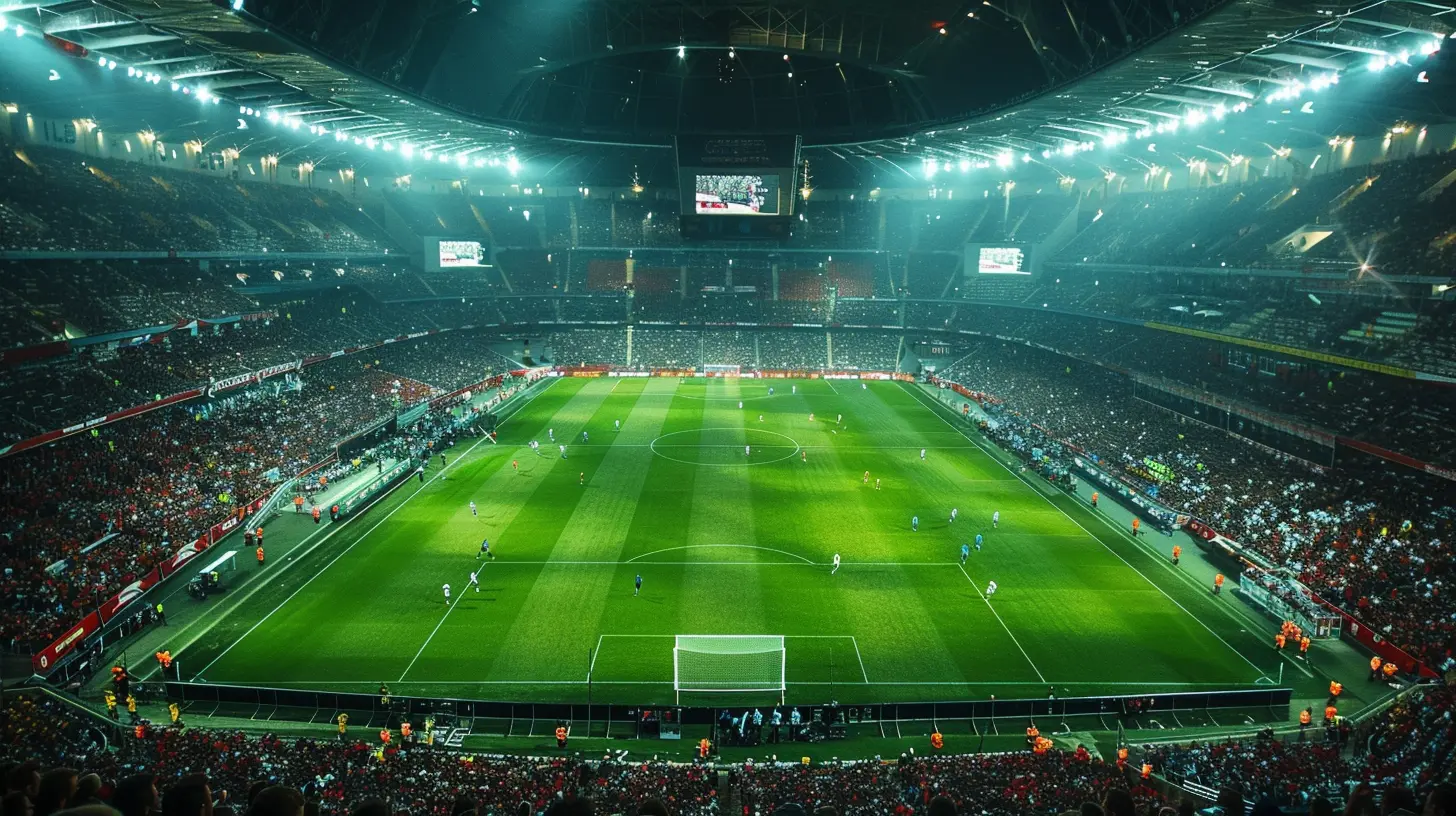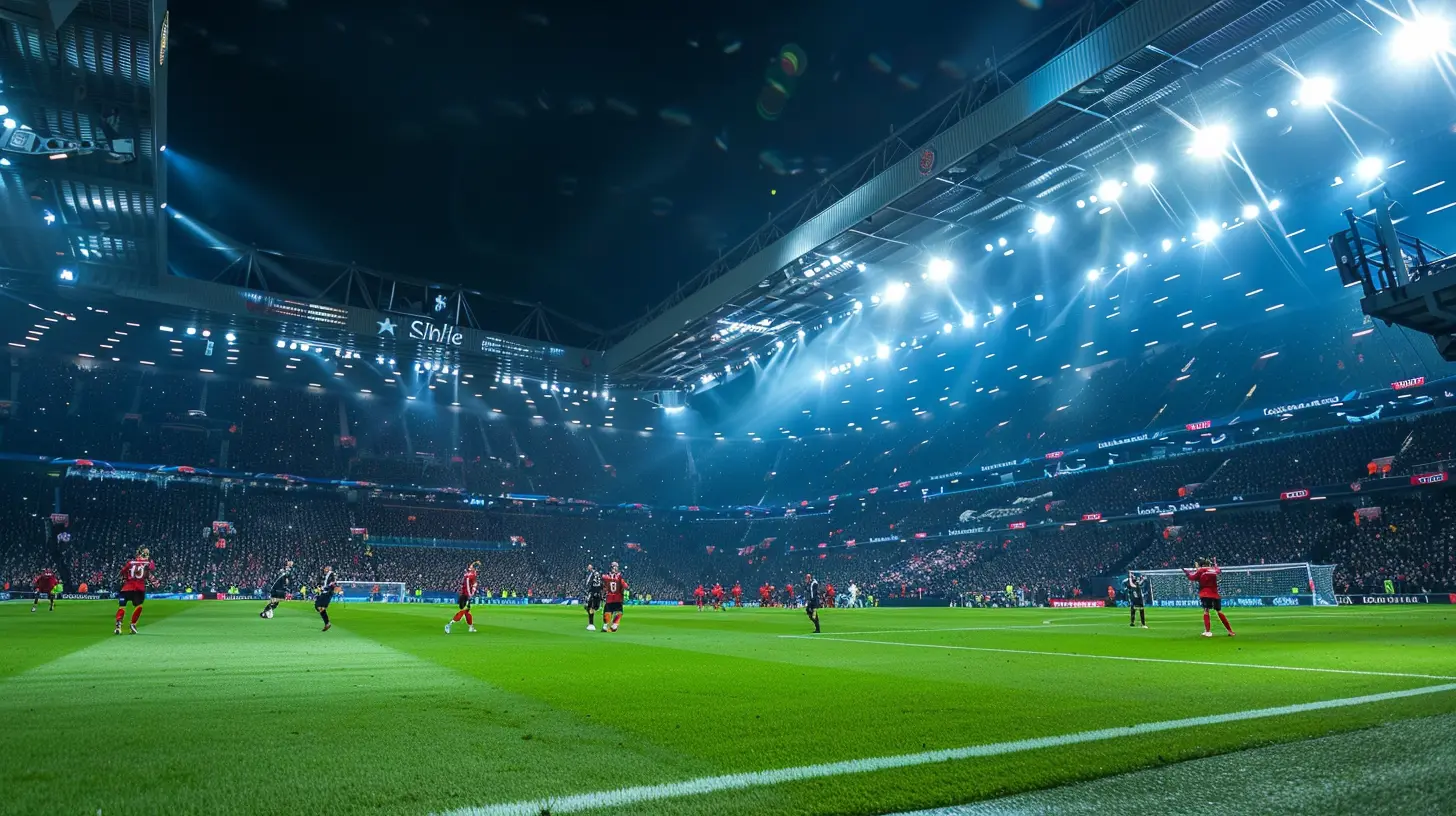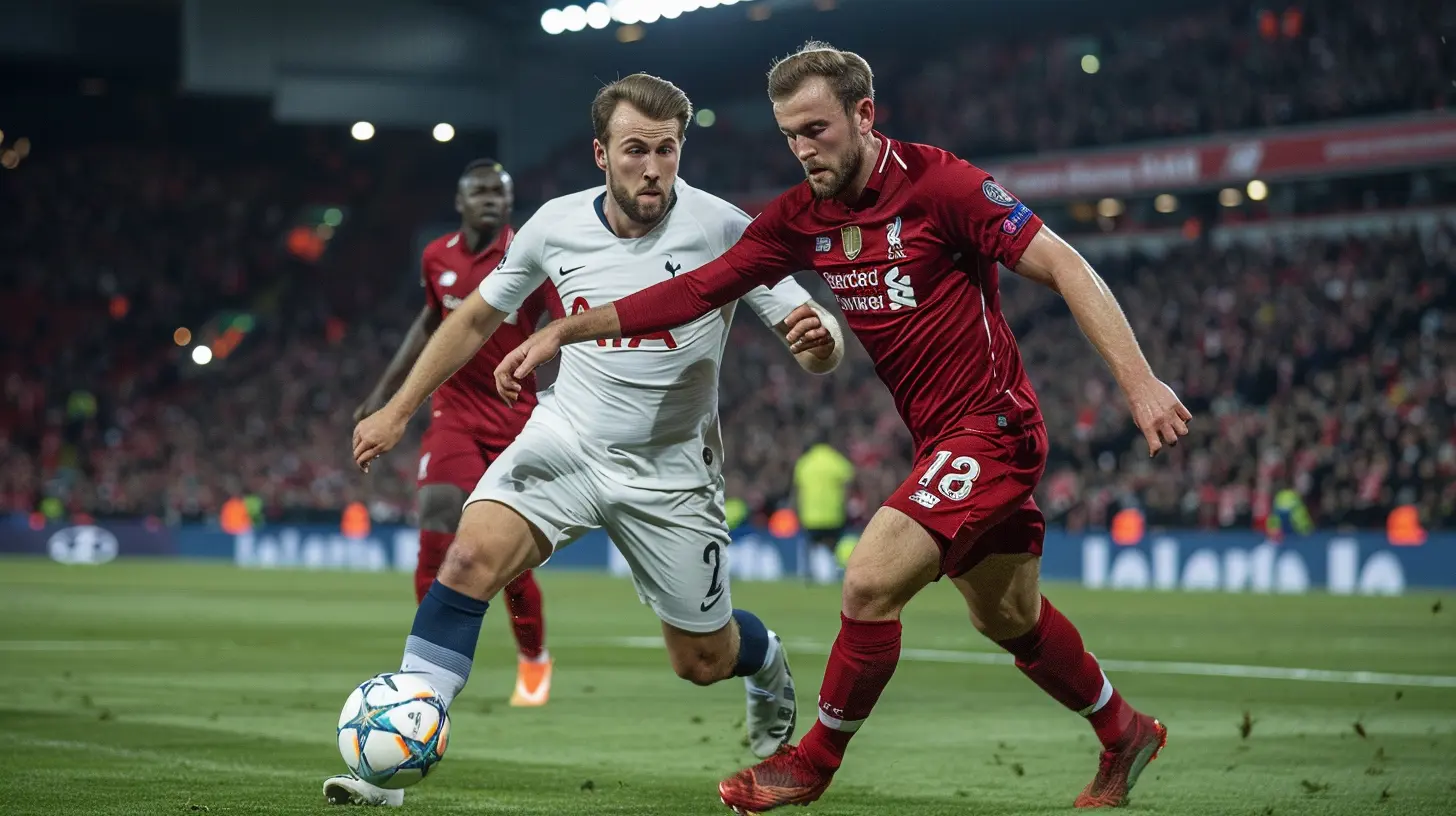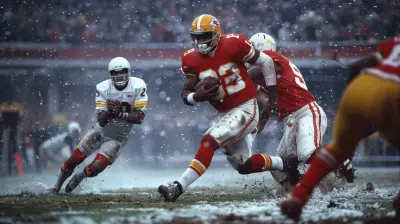How Tactical Flexibility Helped One Team Dominate the Opposition
12 April 2025
In the fast-paced world of sports, the ability to adapt and evolve is often the key to success. You could have a team brimming with talent, but if they can't adjust to different situations or styles of play, they might as well be a Ferrari stuck in first gear. So, what happens when a team combines skill with tactical flexibility? Well, you get dominance. In this article, we’ll dive deep into how tactical flexibility helped one team rise above the rest and completely outclass their competition.

What is Tactical Flexibility?
Before we dive into the specifics of how one team used tactical flexibility to dominate, let’s first break down what it actually means. Tactical flexibility is the ability of a team to adapt its playing style, formation, and strategy to meet the demands of a specific game or opponent. It’s not about sticking to a rigid game plan; it’s about having the intelligence, awareness, and versatility to change things up on the fly.Think of it like a Swiss Army Knife. You wouldn’t use the same tool for every task, right? Sometimes you need scissors, sometimes a bottle opener, and sometimes, well, you just need a toothpick. Tactical flexibility works the same way. Teams that can shift between different styles of play—whether it's pressing high, sitting back defensively, or switching formations—are much more likely to succeed against a wide range of opponents.
Why Is Tactical Flexibility So Important?
Imagine you’re stuck in a chess match, and you know your opponent’s every move. If they only ever use one strategy, you’d have them figured out in no time. Now, apply that to sports. If a team only ever plays one way, opponents eventually catch on. They’ll know how to exploit weaknesses, how to neutralize threats, and how to limit opportunities.That’s why tactical flexibility is crucial—it keeps the opponent guessing. When a team can switch gears mid-game, it throws a wrench into the opposition's plans. They’re left scrambling to adjust, often without enough time to do so effectively.

Case Study: The Team That Mastered Tactical Flexibility
Now, let's talk specifics. One team that stands out when it comes to tactical flexibility is Pep Guardiola’s Manchester City. Over the past few seasons, they’ve dominated English football, and much of that success is rooted in their ability to adapt on the fly. Guardiola's City isn’t just a one-trick pony. They can press high, they can sit deep, they can play through the middle, and they can stretch the pitch wide. It's like watching an orchestra with every instrument perfectly tuned.Dynamic Formations: The Key to Unlocking Opposition Defenses
One of the most noticeable aspects of tactical flexibility is the use of dynamic formations. While many teams stick rigidly to a 4-3-3 or 4-4-2 formation, Manchester City isn’t shy about tweaking their shape depending on the circumstance. It’s not uncommon to see them shift from a 4-3-3 to a 3-4-3 mid-game, all without missing a beat.This adaptability is vital because different formations exploit different weaknesses in opposition defenses. For instance, a 4-3-3 might give you more control in the midfield, while a 3-4-3 might offer more width, stretching the opposition and creating space for attackers to exploit. It’s this fluidity that keeps the opposition constantly guessing and, more often than not, leaves them chasing shadows.
The Role of Versatile Players
Of course, tactical flexibility wouldn’t be possible without versatile players. In Guardiola’s system, players like Kevin De Bruyne and João Cancelo are prime examples of this. De Bruyne can operate as a traditional central midfielder, but he’s just as comfortable playing wide or in a more advanced “false nine” role. Cancelo, a full-back by trade, often tucks into midfield, offering an extra body in the middle of the park and helping City dominate possession.These types of players are like utility knives—they can do it all. Their ability to shift roles depending on the needs of the team is what allows City to be so tactically flexible. With versatile players, Guardiola can make subtle changes without having to make substitutions, which keeps opponents on their heels.
In-Game Adjustments: The Art of Adapting Mid-Match
Tactical flexibility isn’t just about having a Plan A and a Plan B; it's about making in-game adjustments based on how the match is unfolding. Guardiola is a master of this. If City is struggling to break down a deep block, he might instruct his wingers to stay wider and his full-backs to push higher. If they’re being pressed aggressively, he could have his team drop deeper and play out from the back more conservatively, pulling the opposition out of position.These adjustments happen in real time, often without the need for a timeout or a break in play. It’s all about reading the game and making the necessary tweaks to exploit the opposition’s weaknesses.

How Tactical Flexibility Differs from Tactical Rigidity
To truly appreciate the value of tactical flexibility, it's essential to compare it to its opposite: tactical rigidity.Some managers are known for sticking to their systems no matter what. While this can work if you have the players to execute it perfectly, it can also be a hindrance. Take, for example, José Mourinho’s time at Manchester United. Mourinho is known for his defensive style, often setting his team up to sit deep and play on the counter. While this worked for a time, opponents eventually figured it out. When things weren’t going well, Mourinho didn’t have a Plan B. United struggled, and Mourinho’s tenure ended in disappointment.
This is where tactical flexibility shines. In contrast to rigid systems that rely on executing a single style perfectly, flexible systems allow for adaptation. If Plan A isn’t working, you move to Plan B, and if that doesn’t work, well, there’s always Plan C. Teams that can shift gears like this are much harder to break down, and they have a much better chance of finding a way to win, even when things aren’t going to plan.

How Tactical Flexibility Affects the Opposition
We’ve talked a lot about how tactical flexibility benefits the team that’s implementing it, but what about the impact on the opposition?When a team is capable of changing formations, changing tactics, and adjusting their approach mid-game, it forces the opposition to constantly be on alert. It’s like trying to play a game of cards, but the rules keep changing. Just when you think you’ve figured out how to stop the opposition’s attack, they switch it up, and suddenly, you're vulnerable again.
This has a psychological effect as well. Teams that face tactically flexible opponents often end up second-guessing themselves. Should they press high, or sit back? Should they mark the full-backs, or focus on the wingers? This indecision can lead to costly mistakes, opening the door for the flexible team to capitalize.
The Downside of Tactical Flexibility
Now, it wouldn’t be fair to talk about tactical flexibility without mentioning its potential downsides. While being adaptable is often a strength, it can also lead to confusion if not executed properly. If players aren’t fully on board with the system or don’t understand their roles in different formations, tactical flexibility can lead to disorganization. It’s one thing to be adaptable, but if the players don’t know what’s expected of them in different situations, it can all fall apart.Additionally, constantly switching formations and tactics can sometimes lead to a lack of cohesion. If you’re always changing things up, it can be hard to build the kind of chemistry that comes from playing in a consistent system. This is why it’s crucial for managers and coaches to strike the right balance between flexibility and consistency.
Conclusion: The Magic of Tactical Flexibility
In the end, tactical flexibility is like a chess game played on a constantly shifting board. It requires a deep understanding of the game, versatile players who can adapt to different roles, and a manager who isn’t afraid to make changes on the fly. For teams that master it, tactical flexibility can be the difference between being a good team and being a dominant one.As we've seen with teams like Manchester City, the ability to switch formations, adjust tactics, and exploit the opposition’s weaknesses is a hallmark of a championship-winning side. By keeping the opposition guessing, tactically flexible teams can consistently find ways to win, even when the game doesn’t go according to plan.
So, the next time you're watching a game, keep an eye out for those subtle shifts in formation and tactics. You just might be witnessing tactical flexibility at its finest.
all images in this post were generated using AI tools
Category:
Game AnalysisAuthor:

Preston Wilkins
Discussion
rate this article
6 comments
Jude Stone
Absolutely inspiring! Tactical flexibility not only showcases a team's adaptability but also highlights the essence of teamwork and strategy. It's amazing to see how resilience and innovation can lead to unparalleled success on the field!
April 26, 2025 at 11:00 AM

Preston Wilkins
Thank you! I'm glad you found the article inspiring. Tactical flexibility truly is key to success in teamwork and strategy.
Daphne McClendon
Great insights on tactical adaptability!
April 21, 2025 at 4:29 AM

Preston Wilkins
Thank you! I'm glad you found the insights valuable!
Soren Jenkins
Tactical flexibility truly transformed their game strategy!
April 20, 2025 at 3:28 AM

Preston Wilkins
Thank you! Tactical flexibility has indeed been a game-changer for the team, allowing them to adapt and outmaneuver their opponents effectively.
Corin Harris
Great insights! It's fascinating how tactical flexibility can transform a team's performance and create winning opportunities against tough opponents.
April 19, 2025 at 7:15 PM

Preston Wilkins
Thank you! I'm glad you found it insightful. Tactical flexibility truly is a game-changer in overcoming challenges!
Alexa McCall
Great insights! Tactical flexibility truly empowers teams to adapt and outsmart their opponents on the field.
April 15, 2025 at 12:16 PM

Preston Wilkins
Thank you! I'm glad you found the insights valuable. Tactical flexibility is indeed a game-changer for teams.
Nell McGivern
Great insights on tactical flexibility! It’s impressive how adapting strategies can turn the tide in sports. This team's ability to adjust mid-game not only showcased their skill but also left their opponents struggling to keep up. Well done!
April 14, 2025 at 3:07 AM

Preston Wilkins
Thank you! I'm glad you found the insights valuable. Tactical flexibility truly makes a significant difference in performance!




